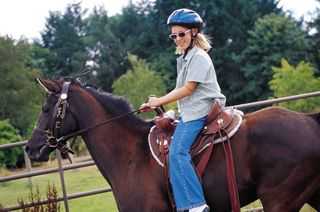

Your horses’ future can be challenging to formulate, but it’s important for a successful transition and for determining and specifying with precision what you want. Selecting a responsible person to be in charge who will make wise decisions for your horse is key. Some racehorses may be sold, which can be done through private sales or at an auction and might result in a greater amount of money for your estate. However, retired or special needs horses might be more difficult to sell or place in good homes. Some owners leave money for their care and designate a beneficiary to receive the horse and those funds.
Similarly, it’s important to be specific regarding who will inherit your belongings. You’ll need to be able to assign an accurate value on items like trophies, saddles and farm equipment.
As far as your land is concerned, you might want to ensure that the property doesn’t end up becoming a shopping mall. A good way to do this is with what is called a conservation easement. This is a legal agreement that limits certain types of uses or prevents development on the land. Conservation easements are helpful in that they include income tax and land preservation benefits. On the downside, the easement can decrease the land’s value and make it more difficult to sell. This limits the potential of its future use.
Negotiating conservation easements can also be complicated, so work with an attorney who is familiar with them to evaluate whether this might be a good option for your estate and your legacy.
If you own an equine business, you need to decide what you want the future of the business to be when you pass away. A qualified estate planning attorney can help you decide what to do and then address all of the related issues.
Once you’ve decided what you want to do when you die, you need to get it in writing. Spend some time with a qualified estate planning attorney and discuss your individual situation to see which options will work best for you. That way you can make certain that your horses, your land and your other assets are handled according to your wishes.
Reference: thehorse.com (July 17, 2016) “Estate Planning Tips for Horse Owners”


